Displaying 61-70 of 893 results
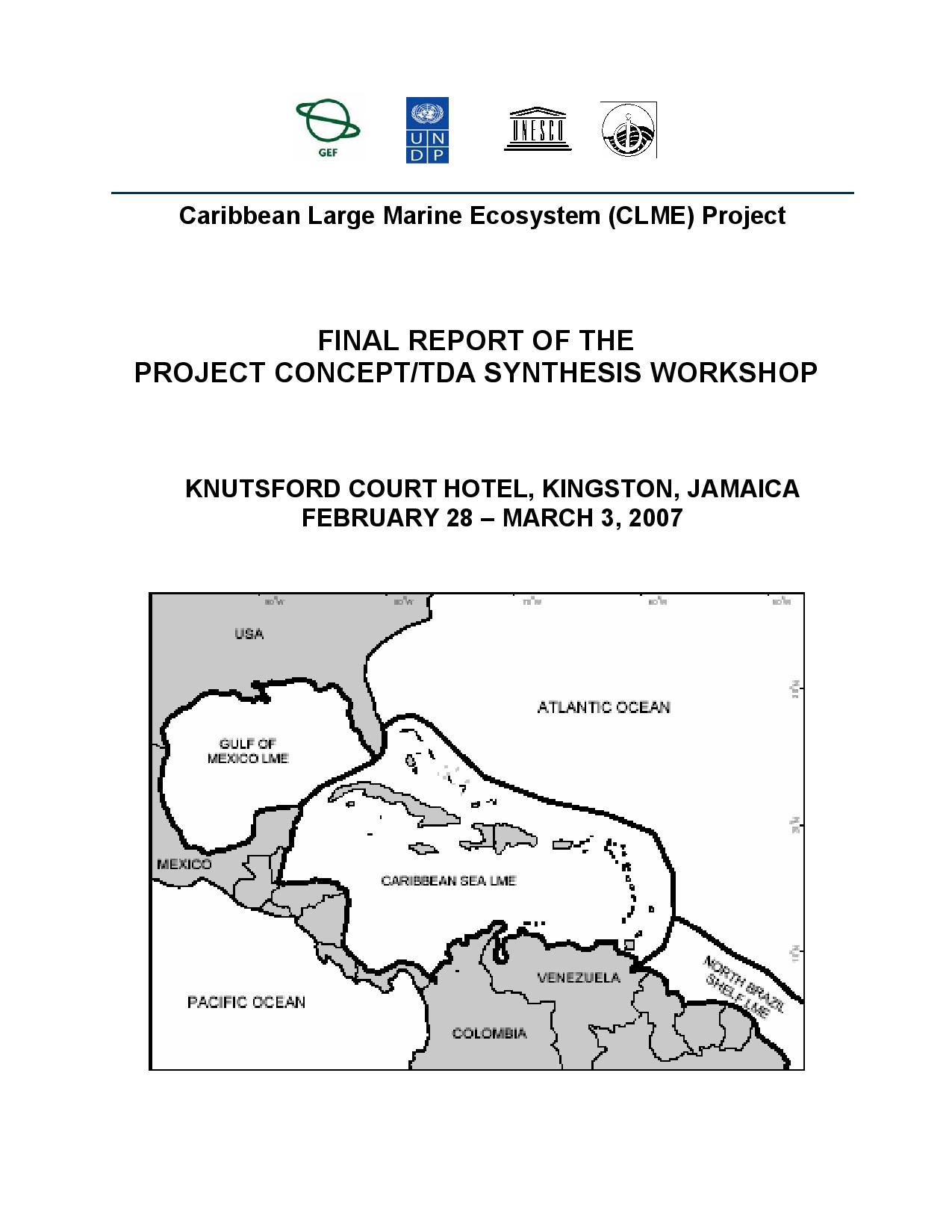
Caribbean Large Marine Ecosystem (CLME) Project – Final Report of The Project Concept/TDA Synthesis Workshop Knutsford Court Hotel, Kingston, Jamaica February 28 – March 3, 2007
The main purpose of the CLME Project Concept/TDA Synthesis Technical Workshop was to develop the technical components of the draft Full-Sized Project (FSP) document for review and endorsement by the CLME Steering Committee and other project partners and the subsequent submission to the GEF.
 9
9


 Report issue
Report issue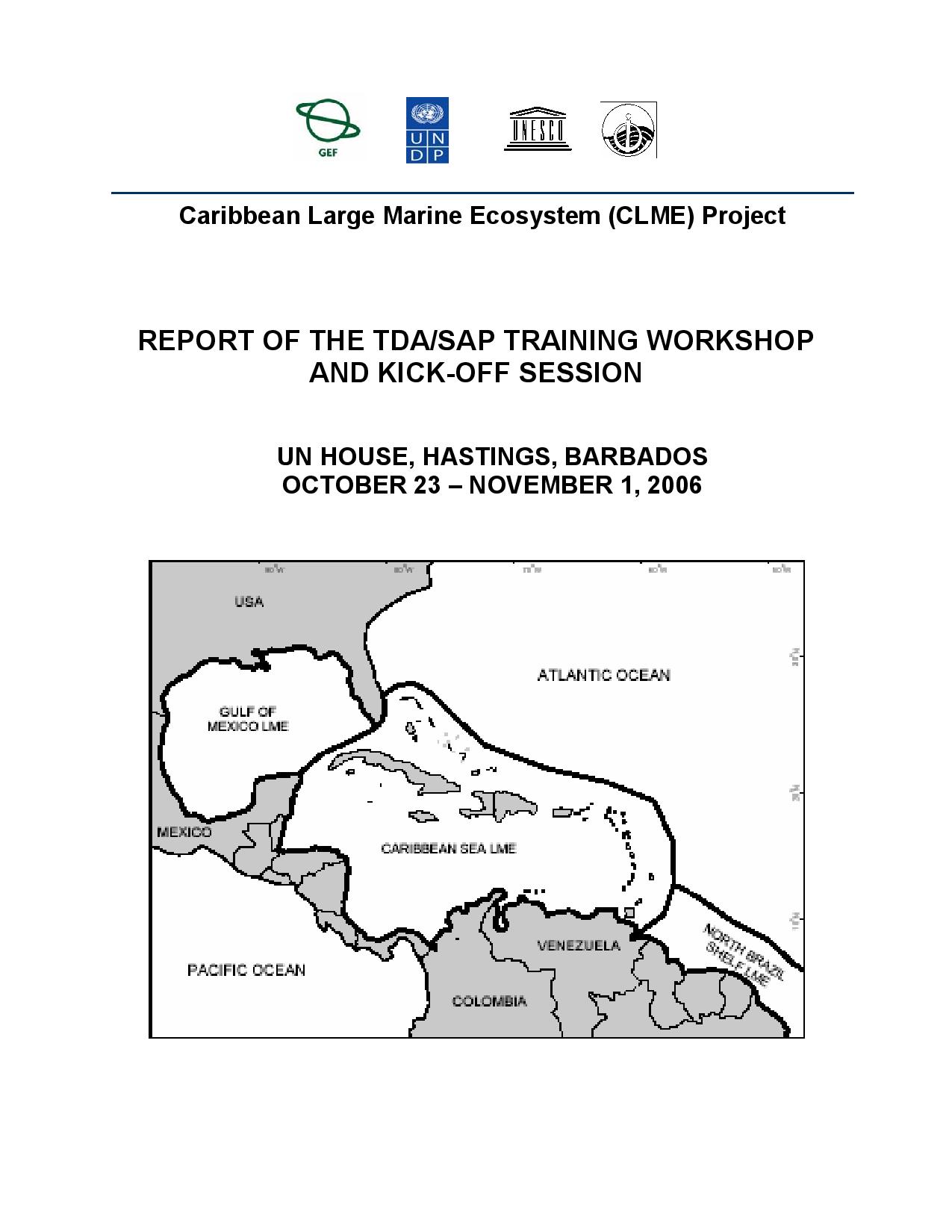
Caribbean Large Marine Ecosystem (CLME) Project – REPORT OF THE TDA/SAP TRAINING WORKSHOP AND KICK-OFF SESSION UN HOUSE, HASTINGS, BARBADOS OCTOBER 23 – NOVEMBER 1, 2006
To date no abstract has been uploaded for this document
 4
4


 Report issue
Report issue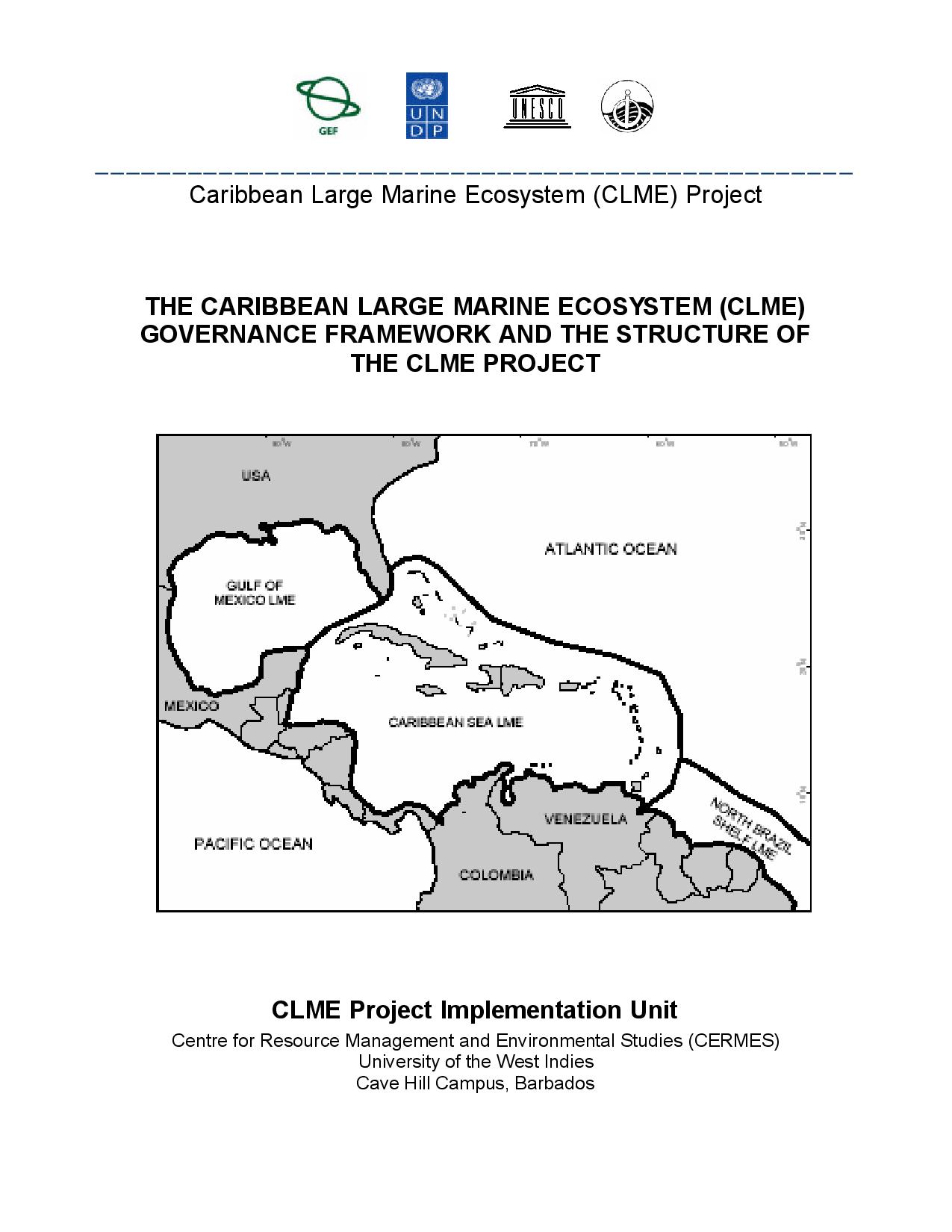
Caribbean Large Marine Ecosystem (CLME) Project – THE CARIBBEAN LARGE MARINE ECOSYSTEM (CLME) GOVERNANCE FRAMEWORK AND THE STRUCTURE OF THE CLME PROJECT
This paper has been prepared to provide stakeholders and potential partners with an overview of how the CLME Project is developing. It aims to inform them so that they can best determine how to interact with the project to enhance its effectiveness and to benefit from it by making best use of what it offers for achieving their own aims.
 4
4


 Report issue
Report issue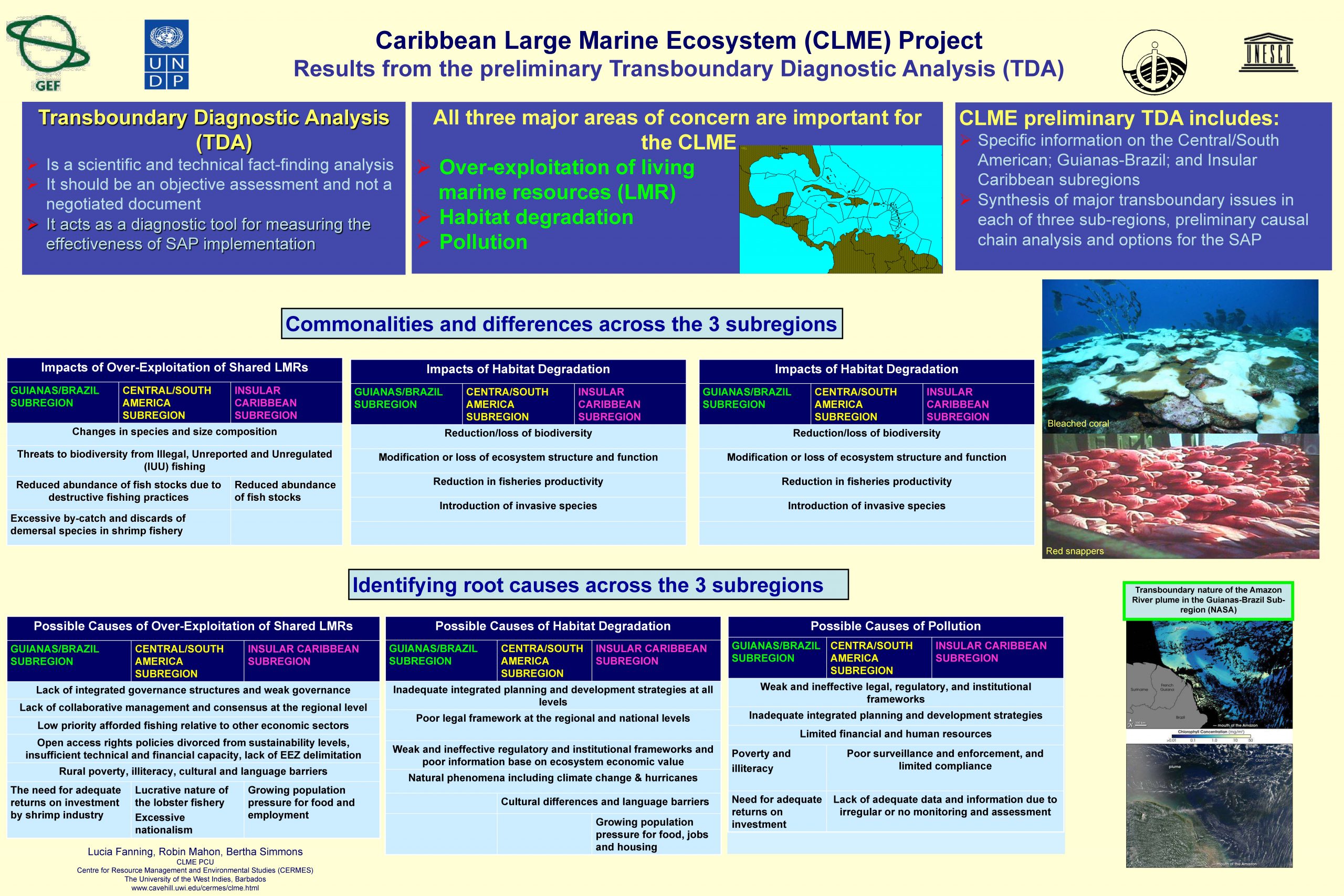
Caribbean Large Marine Ecosystem (CLME) Project Results from the preliminary Transboundary Diagnostic Analysis (TDA)
Transboundary Diagnostic Analysis (TDA): - Is a scientific and technical fact-finding analysis - It should be an objective assessment and not a negotiated document - It acts as a diagnostic tool for measuring the effectiveness of SAP implementation
 8
8


 Report issue
Report issue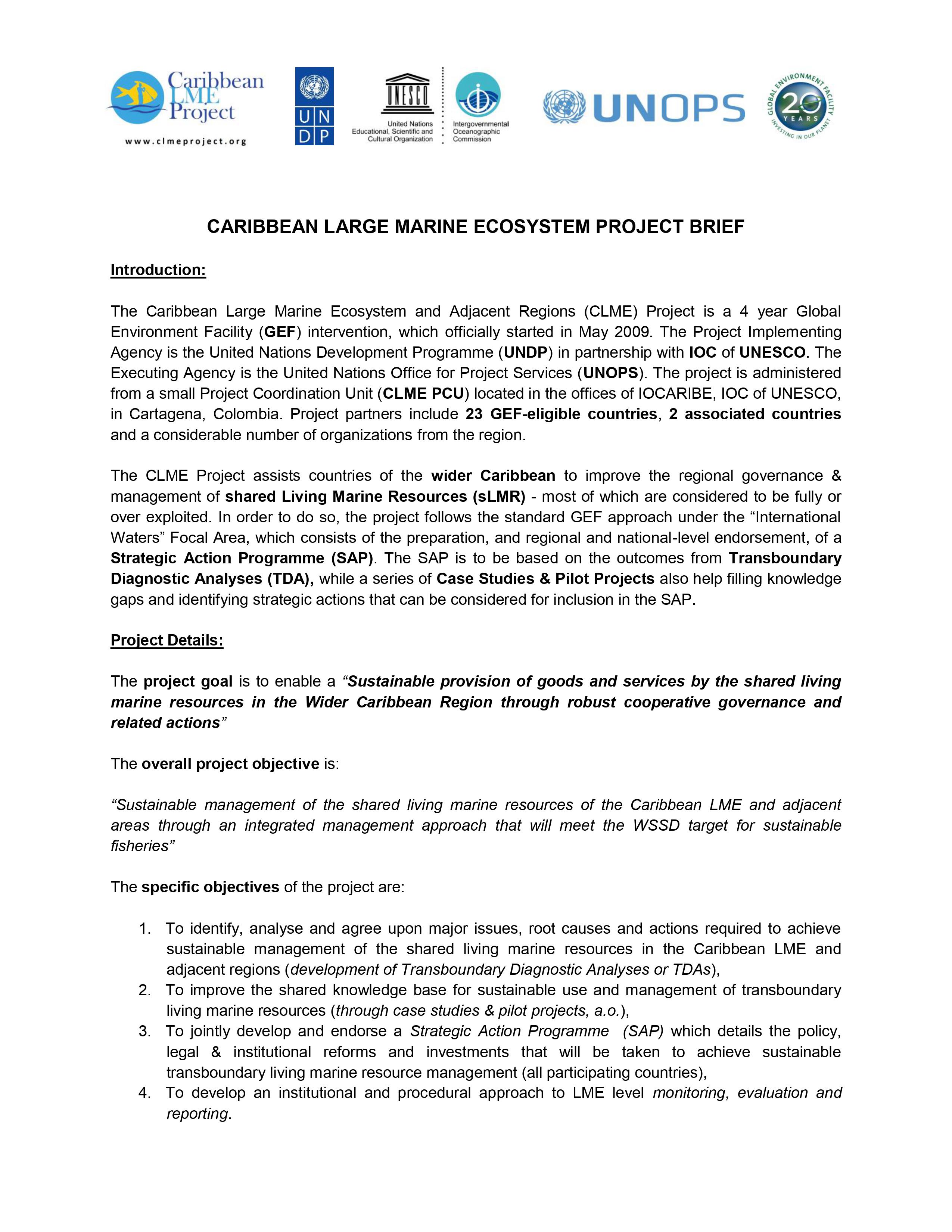
Caribbean Large Marine Ecosystem Project Brief
This Document is makes a brief description of The Caribbean Large Marine Ecosystem and Adjacent Regions (CLME). This is Project is a 4 year Global Environment Facility (GEF) intervention, which officially started in May 2009. The Project Implementing Agency is the United Nations Development Programme (UNDP) in partnership with IOC of UNESCO. The Executing Agency is the United Nations Office for Project Services (UNOPS). The project is administered from a small Project Coordination Unit (CLME PCU) located in the offices of IOCARIBE, IOC of UNESCO, in Cartagena, Colombia. Project partners include 23 GEF-eligible countries, 2 associated countries and a considerable number of organizations from the region. The CLME Project assists countries of the wider Caribbean to improve the regional governance & management of shared Living Marine Resources (sLMR) - most of which are considered to be fully or over exploited. In order to do so, the project follows the standard GEF approach under the “International Waters” Focal Area, which consists of the preparation, and regional and national-level endorsement, of a Strategic Action Programme (SAP).
 9
9
 1
1

 Report issue
Report issue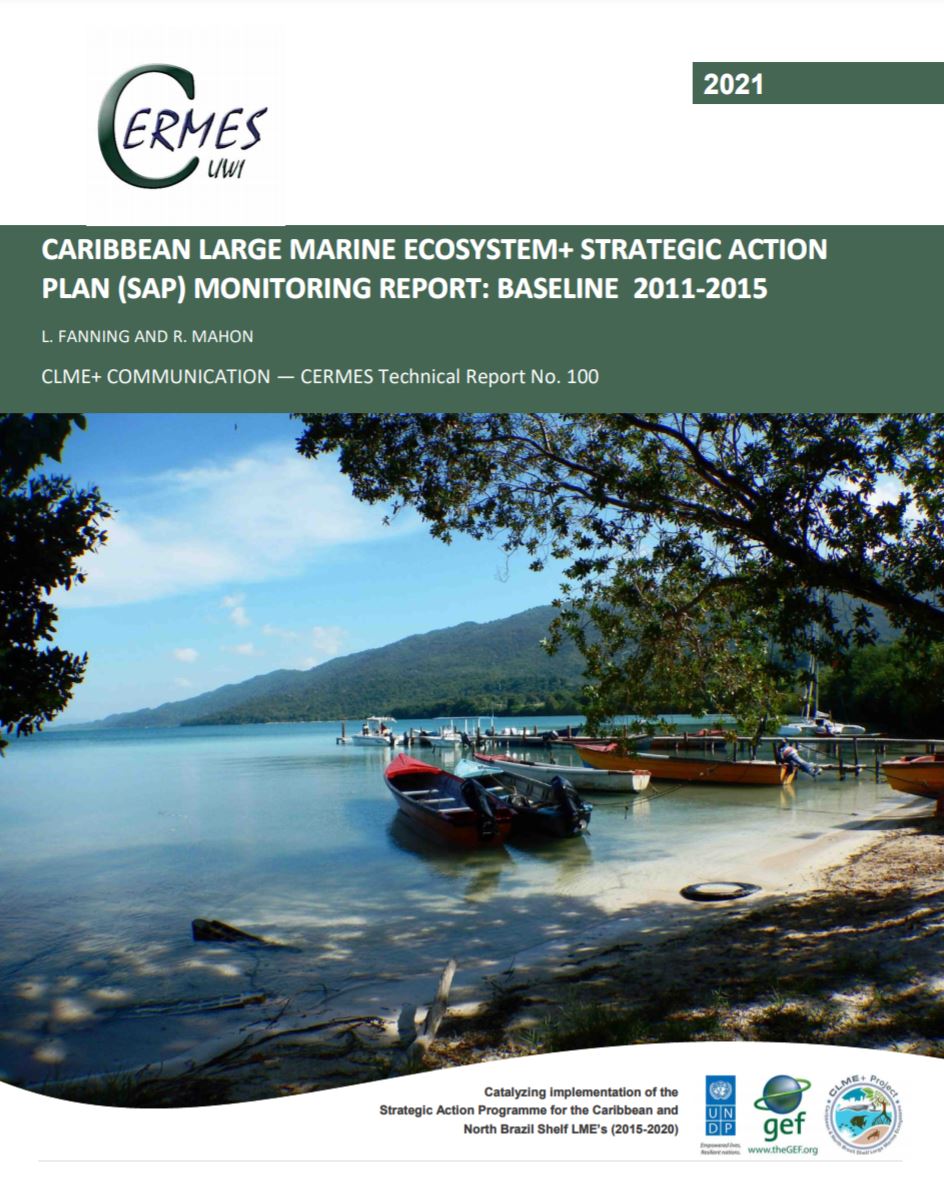
CARIBBEAN LARGE MARINE ECOSYSTEM+ STRATEGIC ACTION PLAN (SAP) MONITORING REPORT: BASELINE 2011-2015
In 2013, coastal countries of the CLME+ region (Caribbean Sea and North Brazil Current LMEs) adopted a 10-year Strategic Action Programme (SAP) for the Sustainable Management of the Shared Living Marine Resources of the Caribbean and North Brazil Shelf Large Marine Ecosystems (CLME Project, 2013; Debels et al., 2017). This SAP provides a roadmap for sustainable living marine resources management, which is to be achieved by targeted interventions supported by strengthening and consolidating cooperative governance arrangements at regional and subregional levels.
 4
4


 Report issue
Report issue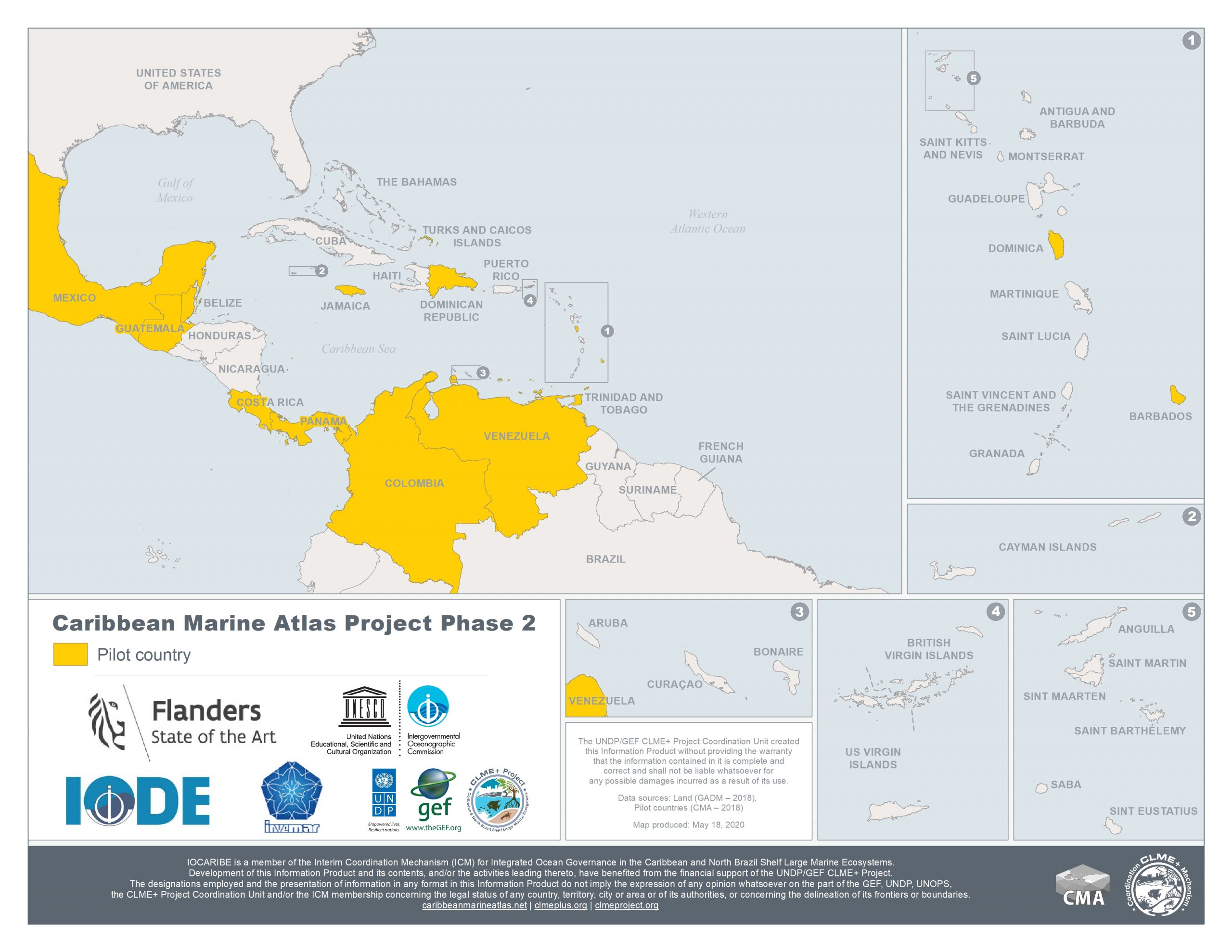
Caribbean Marine Atlas Project Phase 2
To date no abstract has been uploaded for this document
 6
6


 Report issue
Report issue
Caribbean Network of Fisherfolk Organizations (CNFO)
To date no abstract has been uploaded for this document
 5
5


 Report issue
Report issue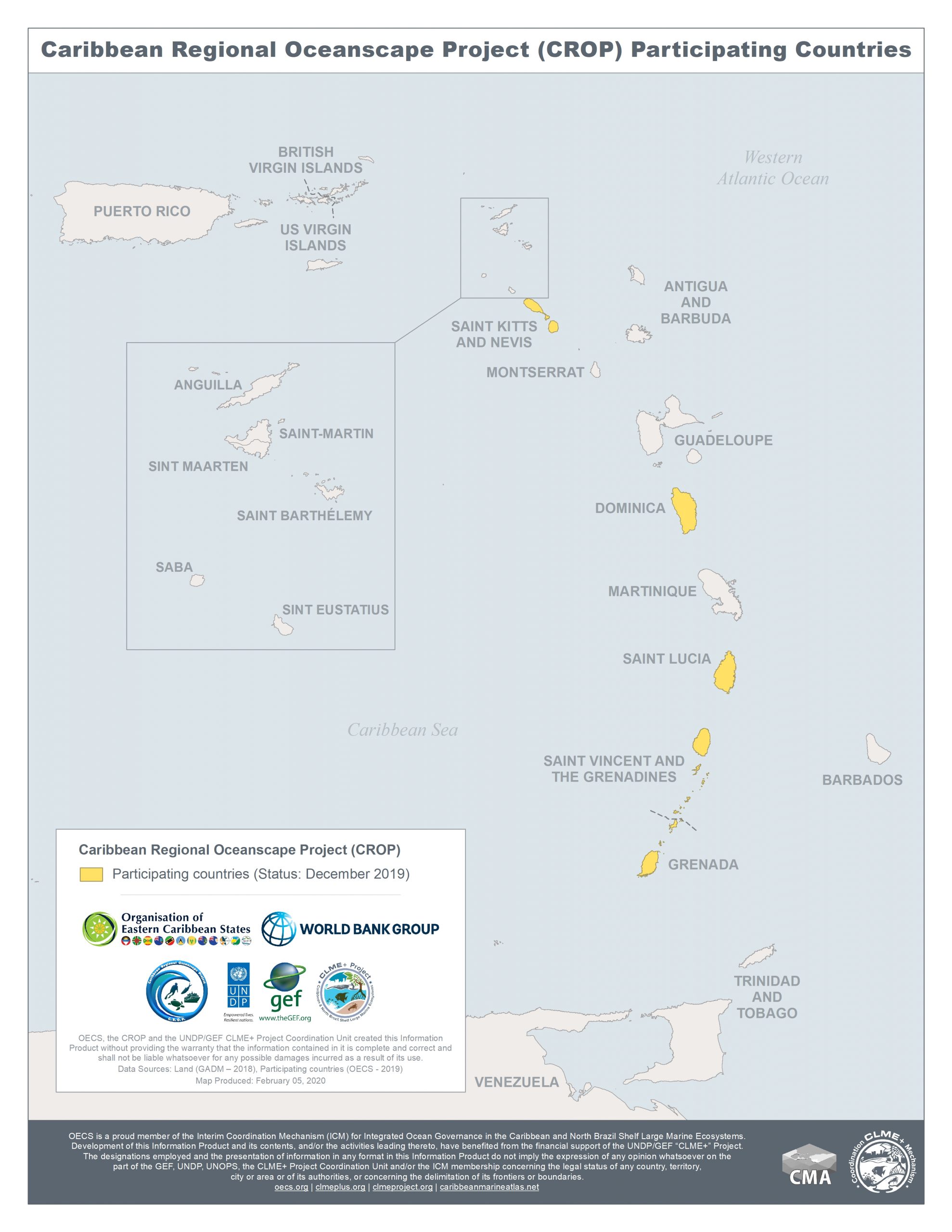
Caribbean Regional Oceanscape Project (CROP) Participating Countries
To date no abstract has been uploaded for this document
 4
4


 Report issue
Report issue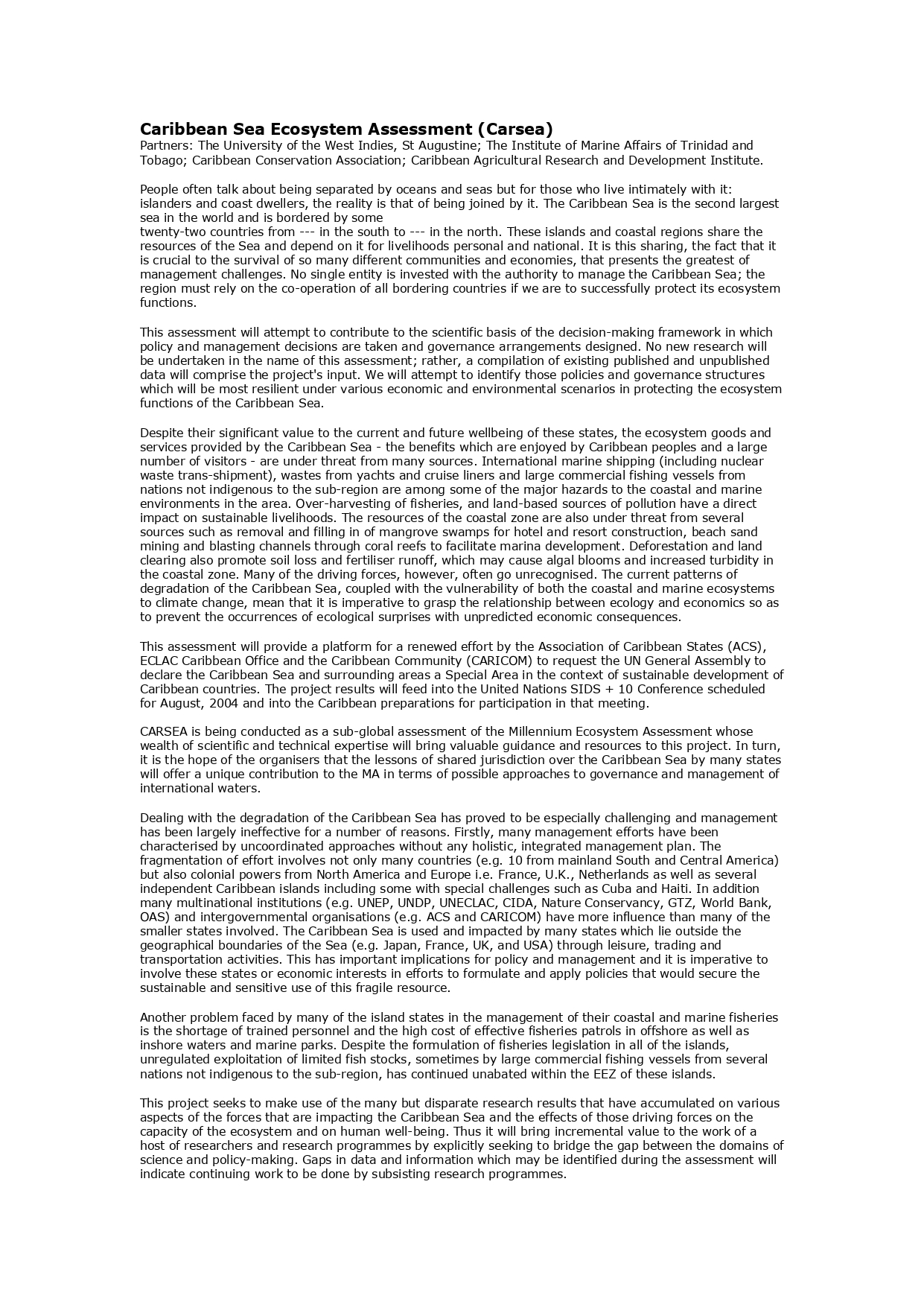
Caribbean Sea Ecosystem Assessment
This assessment will attempt to contribute to the scientific basis of the decision-making framework in which policy and management decisions are taken and governance arrangements designed. The assessment will also establish a consolidated baseline of data and analysis relating to the condition of the Caribbean Sea, for use in periodic monitoring. It will also serve as an example of an approach to integrated assessment of ecosystems, and to inter-governmental/civic society/academic collaboration.
 8
8


 Report issue
Report issue

